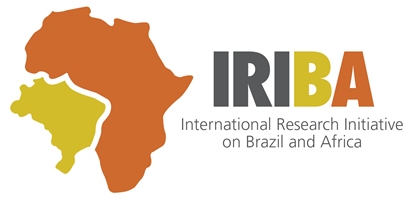Professor Armando Barrientos, IRIBA co-research director
Last month, the Ministry of Social Development (MDS) in Brazil launched Mundo sem Miséria (World Without Poverty), a new platform to share lessons among low and middle income countries.
Mundo sem Miséria forms part of the current poverty reduction strategy adopted by the Brazilian Government in June 2011, Plano Brasil sem Miséria (Brazil Without Poverty). The strategy has four main policy areas: economic inclusion, guaranteed minimum income, access to services, and a proactive approach by public agencies to connect to families in poverty.
The strategy also includes support for South-South cooperation and learning as part of a commitment to support global poverty reduction. The Mundo sem Miséria initiative is rooted in this strategy and plans to focus on the main policy areas identified above.
Mundo sem Miséria is supported by IPEA (the Brazilian government’s thinktank), the UNDP’s International Policy Centre for Inclusive Growth in Brasilia, and the World Bank.
Brazil’s cooperation with low and middle income countries around social policies for poverty reduction led to the establishment of the International Poverty Centre in Brasilia in 2004, a UNDP-Government of Brazil collaboration. Renamed the International Policy Centre for Inclusive Growth, it has helped to stimulate a policy dialogue and South-South learning on global poverty reduction and development.
Brazil’s focus on South-South learning has been particularly effective in supporting the expansion of social protection in Africa. Links were established in 2008 with the participation of the then MDS Minister Mr Patrus Ananias at the Regional Conference on Social Protection in Namibia. The Brazil-Africa Programme of Cooperation in Social Protection supported technical cooperation visits by Brazilian experts to countries in Africa, and study tours by African policymakers to Brazil.
Video series: social protection in Brazil
Mundo sem Miséria has been launched in an age when Southern policies and strategies are essential to reshaping international development policy and global poverty reduction efforts. The persistence of adverse economic conditions in high income countries following the global financial crisis in 2008 has led to aid retrenchement; while sustained economic growth in the South is creating the space for domestic initiatives aimed at reducing poverty and inequality.
Progress towards reducing poverty and eradicating extreme poverty now depends, more than ever, on policy decisions taken by Southern governments themselves.

Is this some kind of a joke? What happened to the children in Brazil recently? Murdered so they do not tarnish the glamourous image of Fifa Worldcup 2016! What is Brazil doing for Africa when they cannot even help their own citizens? Read here —> http://revolution-news.com/brazil-unleashes-new-terror-favelas-aims-silence-anti-capitalist-social-movements
What do governments intend to do if no one is brought to justice?
Hi Kelly, thanks for your comment. I’d certainly agree with you that there are very real problems in Brazil right now, not least the often heavy handed police response to legitimate protest. We totally agree that justice needs to be done – and in fact one of the issues we’re researching at the moment looks at some of the problems and within the Brazilian justice system and how they might be fixed.
Having said that, I do think there’s much that Brazil can share with other countries about how to accelerate development – particularly when you take a slightly longer term perspective. For example, child mortality has fallen by 77% since 1990 from 62 per 1000 to 14 per 1000. Compared with many African countries, that is spectacular progress, so I don’t think it’s unreasonable for people to look at how it’s been achieved. Indeed many African governments are pro-actively asking Brazil to share its experiences with them. Doing this costs the Brazilian state little or no money – so surely they shouldn’t turn down requests for help?